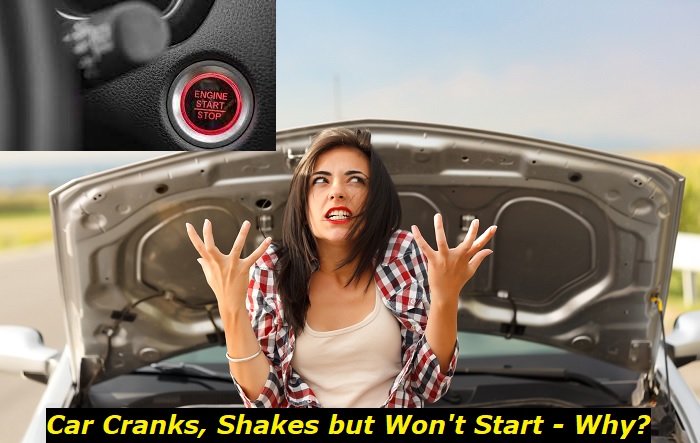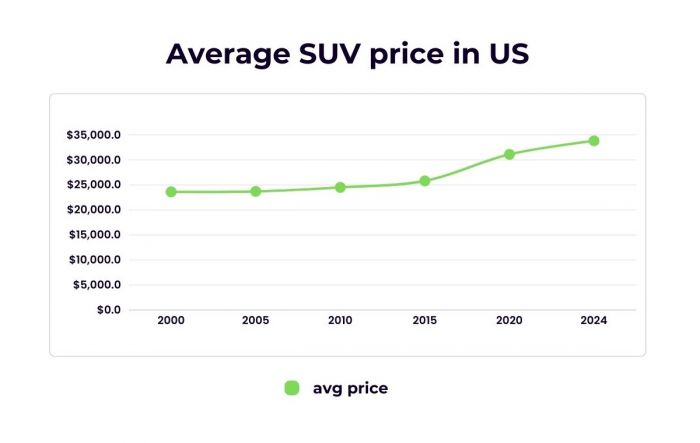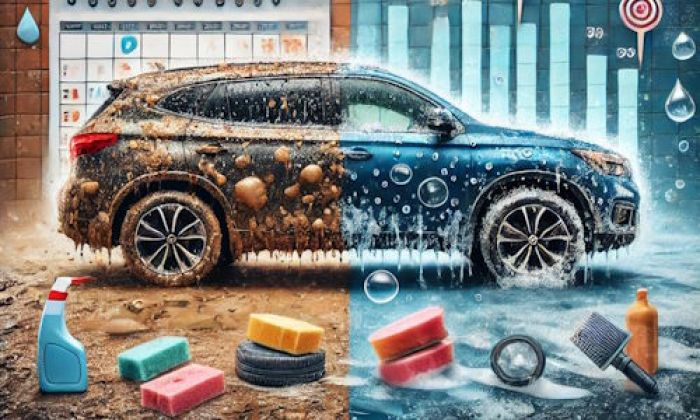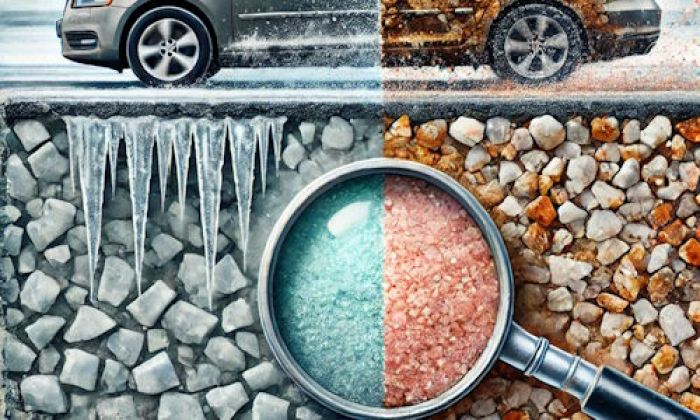Starting a car is a very straightforward action. You get into the vehicle, put your key into the ignition, and twist or push the start button. You hear the lovely cranking sound, after which the engine comes alive, and you go about your day. This sequence has become so routine to vehicle owners that they do not think much about it anymore.
Crank-no-start problems highlights
- Level of urgency:High
- Can you drive?Obviously, no
- DIY inspection:Possible but complicated
- DIY repair:Mostly,impossible
- Price for repair:$350 - $800
- Common Reasons:No spark, no fuel, no air, battery issues, starter problems, electronics
- Ways to fix:Inspect units that may cause this problem one by one

Why do cars crank?
The car "crank" is the "churning" or "whirring" sound a vehicle makes after the driver turns on the ignition and before the engine starts. Cranks and shakes are a byproduct of the process that powers up the engine. You can understand cranking better if you know how the engine powers up.
Your car engine starts because of the ignition/starter system. Four elements are crucial for the engine to start: air, fuel, compression, and spark.
When you try to turn on your car, the starter motor receives an electrical signal from the battery. Then, the starter motor amplifies the electrical signal and rotates the engine's crankshaft. As the crankshaft rotates, a mixture of air and fuel gets compressed in the engine's cylinders.
The spark plug then ignites this mixture, creating a controlled explosion that generates a force that pushes the piston downward. Suppose the above steps are successful; the downward motion of the piston creates rotational energy for the crankshaft. Following this, the crankshaft turns the car's transmission and the wheels. At the same time, other systems that the engine needs to run also receive power.
The starter motor, rotating crankshaft, and moving pistons, which start the engine cycle and compression, create the cranking sound and shake. The process involved in igniting the engine after turning the ignition key or pushing the start button usually takes less than three seconds. If there is a problem at any point in this very controlled process, your car might crank and shake without starting.
Seven reasons your car fails to start despite crank and shake
1) Failing starter motor
A likely reason your engine does not come on despite audible cranking could be a problem with your starter motor.
The starter motor is an electrical device that turns or rotates the engine during ignition. After which, the engine continues to operate on its power.
A key point to note is that the engine will not crank if the starter is completely damaged or dead. However, a starter motor on its death bed or last legs may still crank and shake the engine and yet not have enough power to rotate and start the engine. Therefore, the problem is not the starter if the engine cranks as expected. But, if the engine turns slowly or you hear weird sounds as you try to start your car, the starter motor could be the issue.
A dying battery or corroded battery cable may also prevent the starter motor from powering up the engine.
2) Fuel
For the engine to start, it needs fuel. As such, a car with an empty tank cannot start the engine. The simple solution to this problem would be to refill your gas tank.
Besides an empty gas tank, there are other reasons fuel may not reach the engine:
- A Leaking or damaged gas tank.
- Malfunctioning fuel pump; This will prevent gasoline from flowing from the tank to the engine.
- Damaged fuel filter; Fuel filters purify the fuel going into the engine by removing extrinsic particles and liquids that should not be present. Without filtering fuel, foreign items could damage the engine.
- Clogged fuel injectors; The fuel injector atomizes and passes fuel into an internal combustion engine. As time passes, it is typical for the fuel injector to become clogged by debris or rust. Thus, if the fuel injector gets blocked, the required amount of fuel might not reach the fuel cylinders, and the engine may not start.
Essentially, fuel is critical for powering up and running a combustion engine. The absence of fuel could be why your vehicle cranks and shakes without starting. If you believe your car has enough gas in the tank to power up the engine, consult a mechanic to get the issue correctly diagnosed.
3) Air
Besides fuel, car engines need air to function. Even though this is less likely to be why your car is not starting despite cranking and shaking, it is sometimes the problem. Car engines have air filters, preventing them from getting clogged by sand, dust, dirt, and other pollutants.
Thus, if the air filter gets blocked, it might stop the necessary amount of air the engine needs for combustion from reaching it. If this is the case, the car is unlikely to start, despite cranks and shakes. Getting the air filter cleaned or replaced will solve the problem.
4) Compression
For cars to move energy, compression is necessary. Compression occurs within the engine's cylinders as the fuel injectors propel air and fuel into the combustion chamber. The admixture of fuel and air ignites, and the resultant expansion of burning gas within the cylinders drives the piston and transfers energy into mechanical energy from combustion.
It is that mechanical energy that enables the car to move. In essence, the cylinders compress air and fuel before igniting, allowing for locomotion. Ergo, without adequate compression in a cylinder, the engine might misfire.
Low or inadequate compression could be why your car cranks and shakes but won't start. Different components in the engine can cause low compression, such as:
- Loose timing chain
- Faulty head gasket
- Bad Piston
- Damaged piston rings
- Stuck valve
5) Spark Plug
If your engine receives enough fuel, is getting adequate air, and the compression mechanism works well, the next thing to look out for would be the spark plugs. After compression of air and fuel in the combustion cylinder, the spark plugs will ignite the mixture and power up the engine.
So, if the spark plugs are not operational or are faulty, your car may crank and shake without starting. An engine gets one spark plug per cylinder; if one were defective, there would be a noticeable effect.
Several things can ruin a spark plug, including:
- Degradation or wear
- Overheating
- Oil contamination
- Carbon build-up on the tip
If a spark plug is faulty, replace it or get the help of a mechanic.
Sometimes, the spark plug itself may be fine. But other connected components that supply power to it, like the ignition coil, could affect its performance.
6) Damaged Crankshaft Position Sensor
As already explained, a car's engine needs air, fuel, compression, and a spark to start. And for the vehicle to start, there must be a spark to begin combustion. Notably, that spark cannot occur at any moment. The process and timing for combustion are quite exact. As a result, fuel and air may only partially combust if the procedure for sparking combustion occurs too early or too late. Without complete combustion, the engine may crank and shake and yet not start.
This imprecise timing for sparking up combustion is usually due to a faulty crankshaft sensor.
The crankshaft sensor lets the Engine Control Unit (ECU) understand where and where all the valves and pistons are at any moment. As such, the ECU uses this information to determine precisely when the spark should occur.
The ECU will not know when to fire the spark if the crankshaft sensor is faulty. Fixing the crankshaft position sensor usually involves replacing and calibrating it.
7) Blown Fuse
Fuses in cars protect electrical components and wiring from over-voltage and short-circuiting, which can damage them. A fuse handles electrical components like the fuel pump, fuel injectors, and other components that help the engine start. So, if a surge or overcurrent damages one such fuse, your car may not start, even with cranks and shakes. Fixing the problem will involve replacing the blown fuse.
Conclusion
People with deep knowledge about cars might understand some of the terminologies and processes mentioned in this article. With additional research or a scanning tool, they might be able to isolate why their vehicle does not start despite cranking and shaking. They might even be able to fix the issue.
Yet, this is an introduction to some of these things for most users. While you may have learned a lot from the article, diagnosing the specific reason your car is not starting despite the cranks and shakes might be a tall order. Also, fixing the problem will take work. As such, we recommend consulting an authorized dealer or car repairer near you for adequate diagnosis and repair.
About the authors
The CarAraC research team is composed of seasoned auto mechanics and automotive industry professionals, including individuals with advanced degrees and certifications in their field. Our team members boast prestigious credentials, reflecting their extensive knowledge and skills. These qualifications include: IMI: Institute of the Motor Industry, ASE-Certified Master Automobile Technicians; Coventry University, Graduate of MA in Automotive Journalism; Politecnico di Torino, Italy, MS Automotive Engineering; Ss. Cyril and Methodius University in Skopje, Mechanical University in Skopje; TOC Automotive College; DHA Suffa University, Department of Mechanical Engineering






Add comment